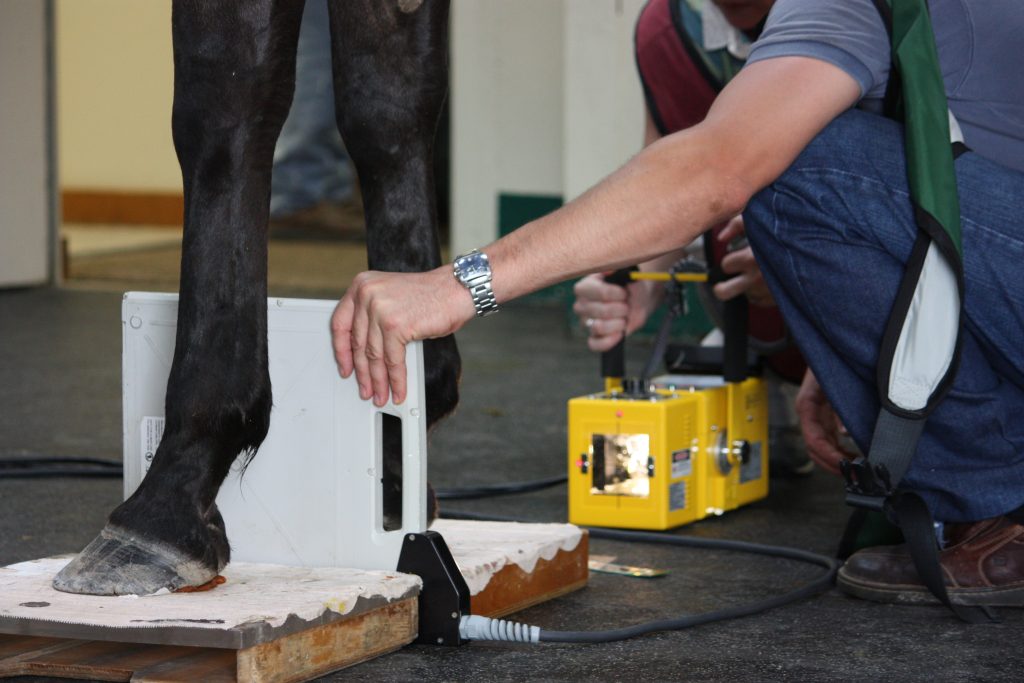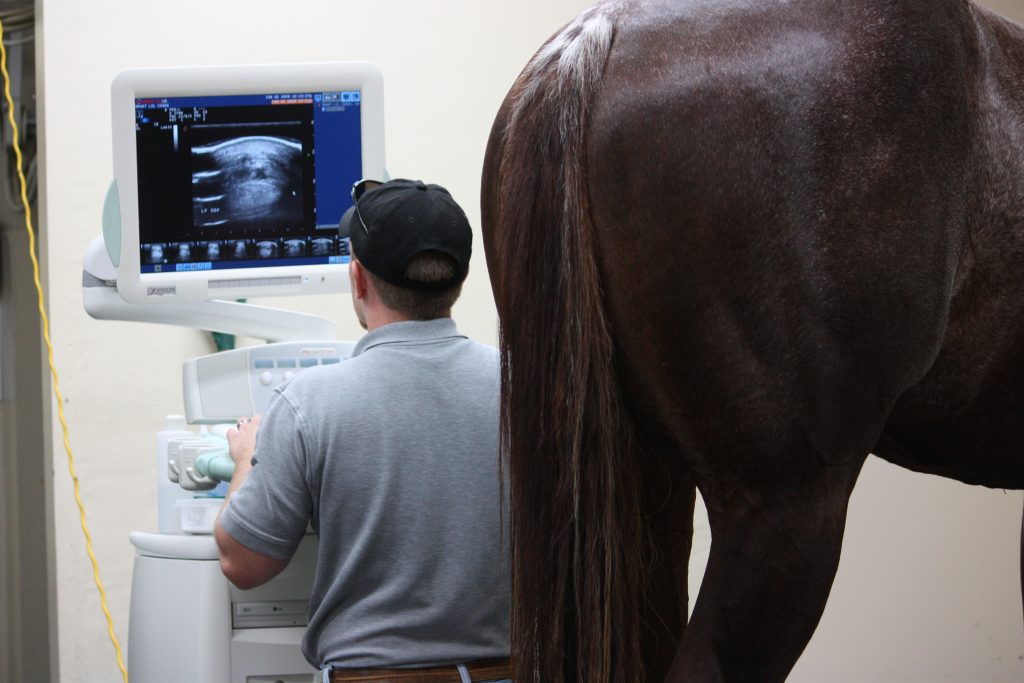5 Things About Equine Insurance
If you’ve been in the horse industry for long, you’ve likely wondered about equine insurance. It’s no secret that horses, especially Western performance horses, can be expensive, and insurance is often touted as a way to help make costs more manageable in the event of an illness or accident. But what exactly is equine insurance, and is it something every horse owner should have?
Quarter Horse News asked Shelley Albracht of Albracht Insurance Agency, LLP, how different equine insurance policies work and which horses makes the best candidates for it.
What Is Equine Insurance?Similarly to human life insurance and major medical coverage, equine insurance is a way to protect yourself financially against unexpected illness, injury and loss. No matter how careful you are, horses can colic, run through fences, impale themselves on equipment, catch diseases or be stolen. Losing a horse from these circumstances can be devastating, but if you have a significant amount invested in the horse, the monetary loss can ruin not only your dreams but your finances, too.
Depending on the coverage, equine insurance allows a customer to transfer the risk of loss to the insurance company once the policy is active. With just a basic full mortality policy, for example, if a horse dies or is euthanized due to the above circumstances, the client will be reimbursed the insured value of the horse. That way, they will get money toward their next horse, rather than having to absorb all the expenses of both losing the horse and replacing it.
 Hoof X-ray * QHN File Photo
Hoof X-ray * QHN File Photo
“Horses are a big investment,” Albracht said. “Protecting your investment is a wise thing to do, and All Risk Mortality with theft and, in most cases, Emergency Colic Surgery, is included under the basic coverage.”
How Does It Work?Before you contact an equine insurance agency, you’ll need to determine the desired amount of insurance you want on your horse, what kind of coverage to take out and how much you can afford to pay for your premium, or the amount you pay annually to keep your policy active. Premiums will vary depending on your horse and are set by the insurance company.
“Several factors are taken into account in determining the premium for equine insurance — these include the value, breed, age and use of each horse,” Albracht said. “Rates normally increase when a horse reaches the age of 16, and will increase yearly until the horse can no longer be insured due to age.”
Most people that insure their horses choose to take out a full mortality policy at a minimum. The rate for this type of policy for a performance horse aged 1 to 15 years often ranges from 2.5 to 4% of a horse’s insured value per year. That means insurance for a horse valued at $10,000 will cost roughly $250 to $400 annually. An EquiStat statistics report or another similar earnings report may be helpful in determining the value of your performance horse.
 Equine Sports Medicine & Surgery, Weatherford, TX * QHN File Photo
Equine Sports Medicine & Surgery, Weatherford, TX * QHN File Photo
Average rates to insure foals will be much higher and will depend on their age. For instance, a foal that is 24 hours old up to seven days can be 6 to 7%, while a foal that is 91 days or older can be 3.5 to 3.7%.
Is Full Mortality Sufficient?Equine policies don’t end with full mortality. To protect yourself from unexpected veterinary expenses, you can add on a Major Medical and Surgical endorsement, or there are Surgical Only coverage options, too.
“While many of our insureds elect to cover the animal for the basic coverage of All Risk Mortality/Theft/Emergency colic surgery, some are now requesting the Major Medical Insurance [MM&S], or at the very least Surgical insurance,” Albracht said. “While MM&S does not cover pre-existing conditions or basic maintenance, if the animal is injured or becomes ill, the costs are considerable. The added endorsement of Major Medical and Surgical or Surgical Only Insurance can help reduce the costs to the owner if the unexpected happens.”
Major Medical and Surgical policies provide coverage for “the reasonable and customary cost of medical and/or surgical procedures performed on your horse as a result of an accident, illness, injury or disease,” according to Albracht’s website. Routine medical conditions are not covered, and a deductible may apply to each claim. Make sure to get a copy of the MM&S endorsement form and read it over carefully to see coverages and limitations before purchasing.
A Surgical Only policy may provide coverage for the actual cost of a surgical procedure or policy limit, along with some after care. A deductible could apply to each claim.
Which Horses Should Be Insured?Not every horse necessarily needs to be insured. For horses with an extensive history of injuries and illnesses or retired horses that are over the age of 15, the cost to insure them can be prohibitive.
“Age is the biggest determining factor, as the rates go up after 15,” Albracht said. “Also, if the animal has any health issues or pre-existing conditions, there may be exclusions placed on certain losses or treatments. Owners should take into consideration the value and overall health and condition of each horse when deciding whether or not they wish to insure.”
 Horse receiving a joint injection. * QHN File Photo
Horse receiving a joint injection. * QHN File Photo
Horses that are used for showing or breeding, particularly ones that have bloodlines or skills that are in demand, make excellent candidates for insurance. These horses tend to have higher purchase costs and expenses to care for them, Albracht noted, making them harder to replace.
Where Should You Begin?Once you know the value you want to insure your horse for and the coverage you want to take out, it’s time to start contacting insurance agencies to get quotes. From there, most companies will have certain forms for you to fill out, such as an application and a Statement of Health for each horse.
“In some instances, a veterinary certificate is required if the animal is over a certain value,” Albracht said. “Foals, breeding stallions and any horse with a pre-existing condition or health issue may also require a veterinary certificate. Any exclusions will be discussed with the owner prior to binding coverage and will be listed in their policy.”
Look for agents that have experience with horses and will answer your questions promptly. A good place to start is by talking to the agents that sponsor the events you compete in or advertise in your favorite horse publications.
Final NoteIf you decide to take out insurance on your horse, once your policy is active, you will be required to advise the insurance company of any illness or injury during the policy period. Failure to do so can cause the policy to become null and void. Keep your agent in the loop, and it will make things go much more smoothly.
Mashups and APIs
- Home
- About Us
- Write For Us / Submit Content
- Advertising And Affiliates
- Feeds And Syndication
- Contact Us
- Login
- Privacy
All Rights Reserved. Copyright , Central Coast Communications, Inc.